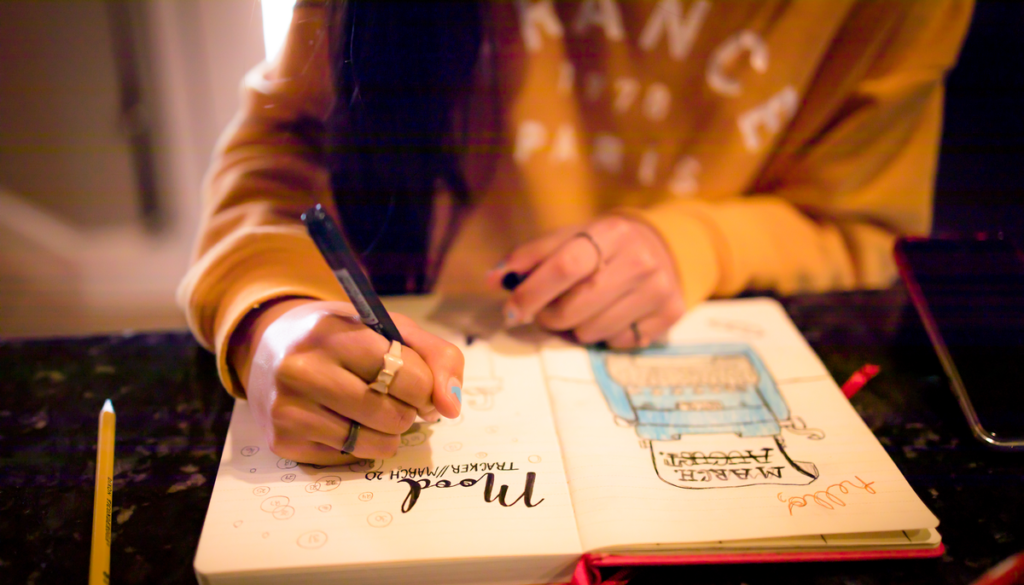It is not always easy to put pen to paper or even type words on a blank screen. It is even more daunting when the grammar rules your English teacher taught you are getting in the way of your process. Sometimes, the idea that someone will read your work can make you self-conscious enough to scare you away from writing.

Well, have you ever heard of a journaling practice? The good thing about keeping a journal is that it is yours. It is your safe space, and you do not have to share it with anyone at all. Within those pages, you write entirely for yourself. You can use all the sentence fragments, shorthand, and punctuational errors you want.
Journals are not just for writers. Many every day people keep a journal – especially successful ones – and everyone can gain from having a regular writing routine.
Benefits of Journaling
A regular journaling practice is healthy, having both emotional and physical benefits. As a verb, the very act of writing is a discovery process. As you write, you will have epiphanies and realize things about yourself and the world around you.
Writing is also a release. In your special notebook, you can record feelings you’ve never said out loud or bring to the forefront and process what you’ve been trying to ignore. If you are frustrated, writing out your feelings helps you figure out why and develop a plan to do something about it.

Journaling improves your communication skills, too. It helps you organize your thoughts, feelings, and ideas before sharing your opinions with others. I challenge you to go deeper after you’re comfortable and have a routine. Be as descriptive as possible. Jot down the smells, tastes, sights, physical and emotional feelings, sounds, people, dialogue, and thoughts.
Not Just for Writing
And if the idea of writing still scares you, that’s okay. A journal doesn’t have to be writing only. I smile when I look back at my high school diary, full of prose and poetry, but also doodles, ticket stubs, and photos of friends, family, and style trends I loved.
A journal is a good place for celebrating your life and happy memories. It’s a living document that solidifies your existence. It helps you remember things about yourself, such as your favorite songs, quotes, recipes, or travel destinations. By focusing on what’s important to you, journaling helps you frame how you want to remember your life, and in turn, how you view your present and future.
How to Get Started

A journaling practice can take up as much or as little time as you want it to. You can make a daily commitment to listing three things you’re grateful for, writing for a specific amount of time, or filling up 1 or 2 pages.
Writing a stream of consciousness – whatever comes to mind without stopping to edit – for 5-minutes a day can reveal things to you and help you see patterns and themes in your life. Even if it seems mundane to you, write it down!












